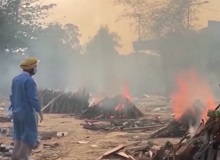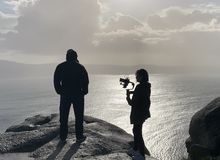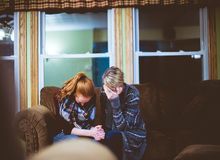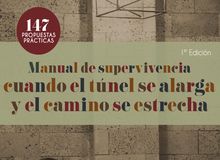


The General Secretary of the Evangelical Fellowship of India (EFI) analyses the tragic situation caused by the new Covid-19 wave. He calls on believers worldwide to pray for India and its churches.

God controls everything so that some day we will know that it was all for our good.

The story is based on the director's childhood memories of his Christian Korean-American family in Arkansas during the 1980s. “I hope it offers some kind of hope after everything that’s happened this year”, says Lee Isaac Chung.

Sharing our load with God helps; seeking his peace is good for our souls.

It is no coincidence that John Le Carré, the master of spy fiction, was himself a spy. He knew what he was talking about. The mistake of conspiracy theories is to believe in perfect plots.

A multimedia project shares the gospel through short films that tell the testimony of people in all 52 Spanish provinces whose lives where restored by Jesus.

Ana María found the gospel through the website In Search of Jesus. Opportunities to share the gospel on the internet are multiplying, according to this online evangelism ministry.

How often we believe God's promises only intellectually, and live as if God hadn't time to look after us!

True comfort, the comfort that reaches the heart, cannot be separated from the person and work of Jesus Christ.

With no visitors allowed, we found ourselves ‘being church’, filling the gap where other clergy from the community were unable to visit their church members. By Katie McClure.

Lament, communities of care and the new normal. An article by Gladys K. Mwiti.

Let us not forget the future hope and comfort that enabling people to die well will bring.

The felt gap between ‘what is’ and ‘what should be’ is a powerful prompt to return to God and cherish the best parts of life—our relationships with others—over other idols.

There is no other mediator, no other system by which to reach God except through Jesus.

Since March, the searches for words like fear, peace, hope and faith in Bible apps increased. “People are seeking God as they wrestle with what they faced in 2020”, You Version founder says.

Radio and digital media platforms are particularly effective tools to reach the Amazigh community and to encourage the noteworthy Christian minority of local believers in their language.

Being in Christ and letting ourselves be guided by the Holy Spirit is the way to be filled with joy.

In 2020, some have been ‘dethroned’. Others have had to admit that their power was much more limited than they thought. But this is good news for those who trust in Jesus Christ.

The first Christmas was no fairy tale. Preach the real Christmas, and give real hope.

All of the different things that Christmas brings can be really hard for children with special needs to cope with.

Let’s be captured by the grace of God as He chose to step into our messy world. Ponder the journey Jesus took from Bethlehem to the Cross.

Learn from the past, avoid its mistakes, and learn to trust more in God.

Joshua Wong was in solitary confinement for organising an unauthorised meeting. “A Bible passage in Romans is what gives me strength”, he said while in prison.

Only our personal relationship with God is worth anything.

The second edition of the ‘survival manual’ published last May aims to be “a professional guide that also reflects our biblical worldview”, to deal with the impact of the ‘second wave’.

Las opiniones vertidas por nuestros colaboradores se realizan a nivel personal, pudiendo coincidir o no con la postura de la dirección de Protestante Digital.